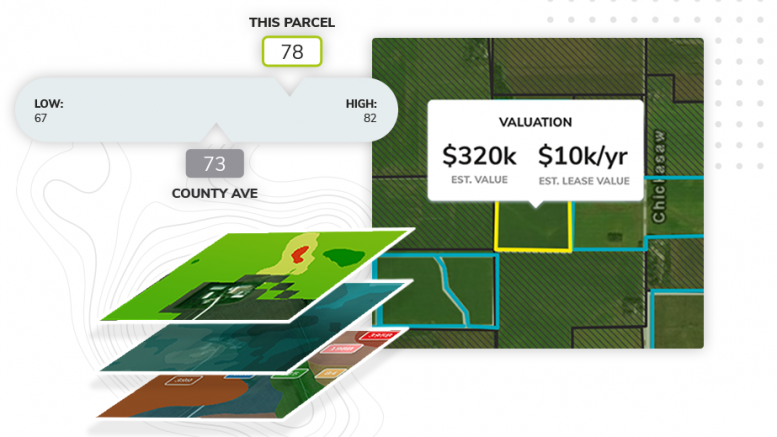CIBO Lab uses advanced simulation technology to provide users with predictive yield trends against multiple scenarios
CIBO, the only technology company that empowers anyone to evaluate land with science-driven, parcel-level insights, announced a new capability for its Land Platform that helps users better estimate crop performance under various scenarios.
The new CIBO Lab enables yield simulations for any field, giving owners, operators, land seekers, and any other interested party a new understanding of how the land is likely to perform.
“Existing yield forecasts don’t take into account real-time environmental and agronomic factors or forecast at the field-level. They’re typically derived purely from large-scale, historical data, or depend upon farmers inputting information about their own fields,” explained Daniel Ryan, chief executive officer (CEO) for CIBO. “CIBO Lab overcomes these limitations by using its differentiated, scientific crop growth simulation platform. As a result, we empower users to simulate crop yield relative to past years, county averages and other fields. This capability lets them better understand a field—even fields that are unfamiliar to them.”
“The magic of CIBO is that it’s a science-based way to provide easy access to detailed, field-level information about land—it doesn’t require collecting more and more data about fields from farmers,” said Michigan State University (MSU) Professor of earth and environmental sciences and CIBO Co-Founder Dr. Bruno Basso. “With this same, science-based approach, CIBO Lab helps users simulate crop growth and compare results countywide.”
CIBO Lab Simulations Helps Anyone Evaluate the Performance of a Field
The CIBO Land Platform evaluates the potential of parcels or fields based upon past management, current practices, inherent productivity, and simulated management practices. This first-of-its-kind, science-based approach uses crop modeling technology built upon 30 years of published MSU research led by Dr. Basso, a renowned researcher in the agricultural systems modeling field.
CIBO Lab’s simulation engine builds upon this foundation of innovation by helping farmers and other stakeholders in the farming ecosystem objectively evaluate a field’s performance and value at any time. With CIBO Lab, users can run a number of online simulations—modifying inputs to accurately represent actual practices and potential/forecasted weather scenarios—to better understand the likely outcomes based upon a variety of factors.
By testing the impact of different scenarios in this way, users can answer critical questions like:
- How are different weather scenarios for the coming growing season likely to affect a field’s yield?
- How will a field perform based upon its historical performance?
- What factors might affect when my crops mature?
- How do fields I’m not familiar with compare to each other?
Users also can save their simulations within CIBO, and re-run the scenarios at any time to take into account actual effects from real weather or other factors throughout the growing season or at any time.
With the insights gleaned from the CIBO Lab, users can make more informed business decisions by taking into consideration what could happen before or after the season begins, according to simulations of various management practices and weather forecasts. Stakeholders—such as owners, investors, lenders, and ag companies—can use the tool to better understand fields with which they are not directly familiar.
“With the new CIBO Lab, I can run ‘what-if’ scenarios for the different farming practices and planting decisions I’m considering while taking into account the impact that various weather forecasts would have on my crops,” said Byron Seward, owner of Seward and Son Planting Company. “These simulations give me powerful, new insight into what might happen in my own fields, and also let me accurately assess and compare fields I’ve never personally operated.”
New Field Report Capability Aggregates Parcel-Level Data for a Better User Experience
Also today, CIBO released a new Field Report capability that lets users easily aggregate multiple CIBO Parcel Reports in order to view unified information about adjacent parcels. By “building a new field” online, farmers and any other CIBO user easily can view and understand key, field-level highlights derived from the parcels’ aggregated data.
“Farmers operate their land at the field-level, not parcel by parcel,” Ryan said. “By surfacing and aggregating parcel-level data—including exclusive, science-driven CIBO insights, proprietary land data as well as public land data like soil maps, weather history, satellite imagery, owner information, and tax information—into field-level insights, we’re helping them more quickly, easily, and accurately understand the true potential of an entire field.”
For more information about the yield simulations available via CIBO Lab, visit https://www.cibotechnologies.com/cibo-lab/
